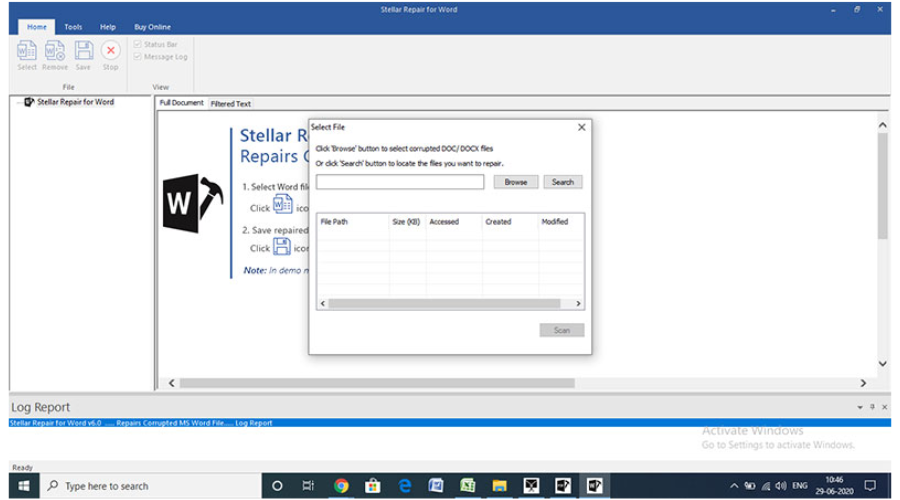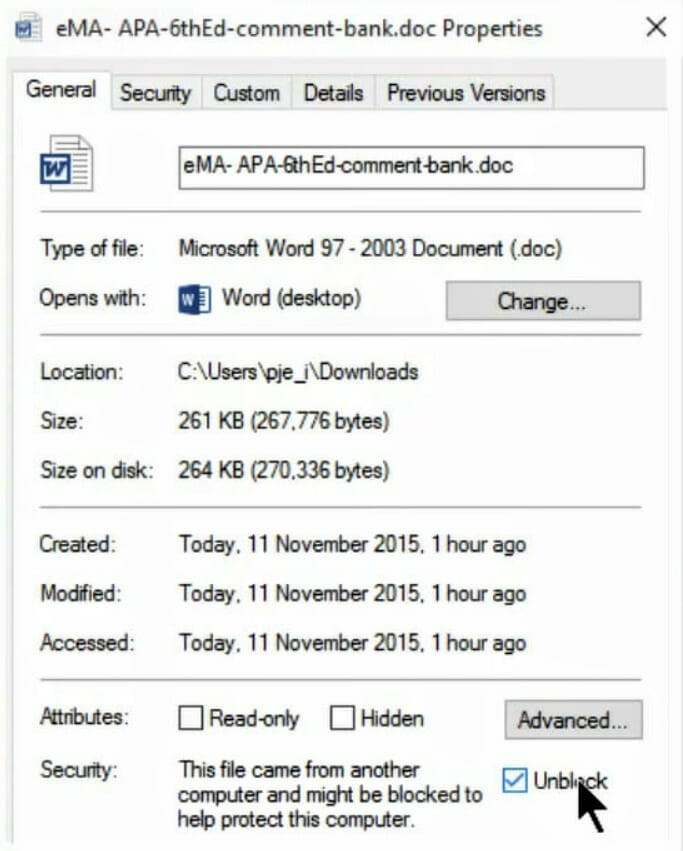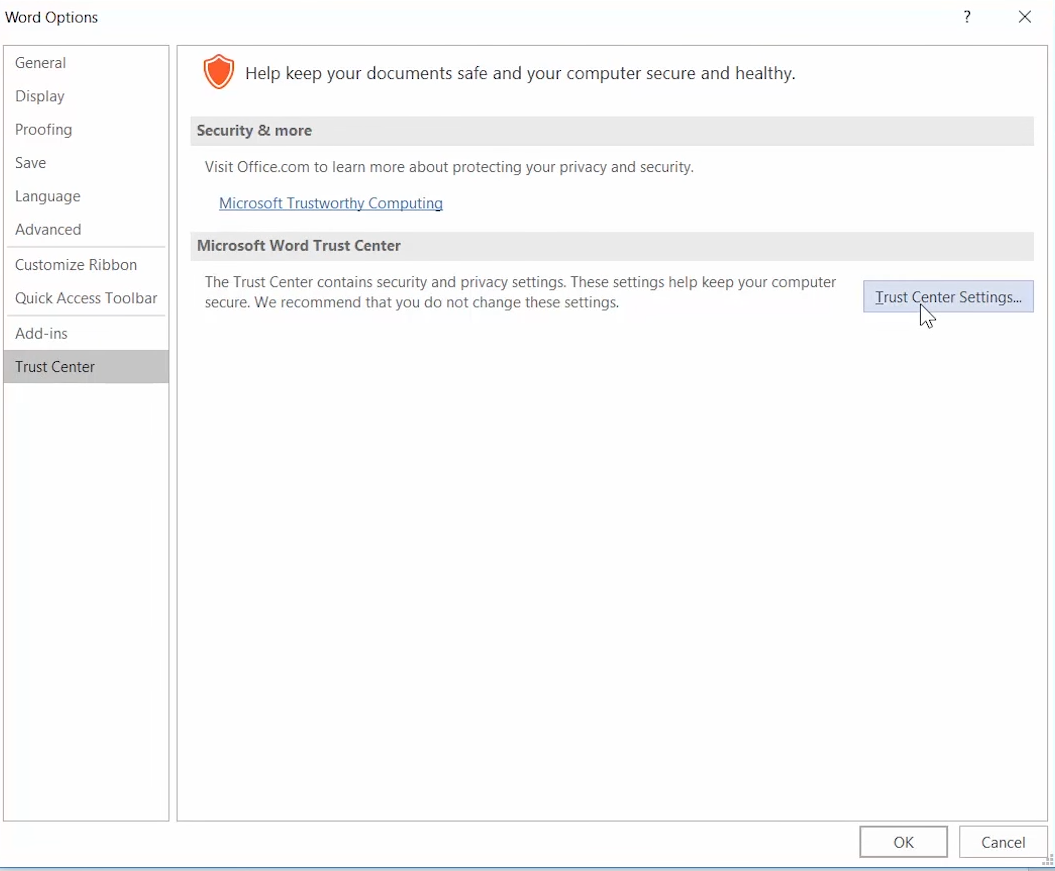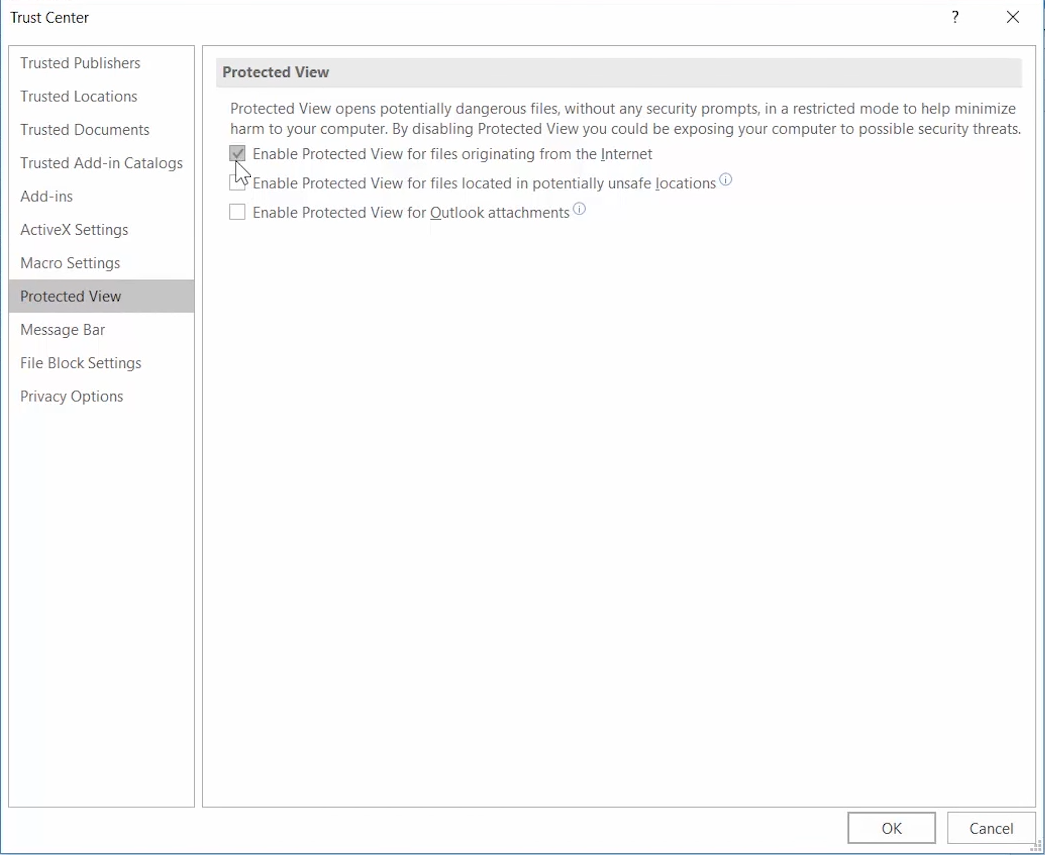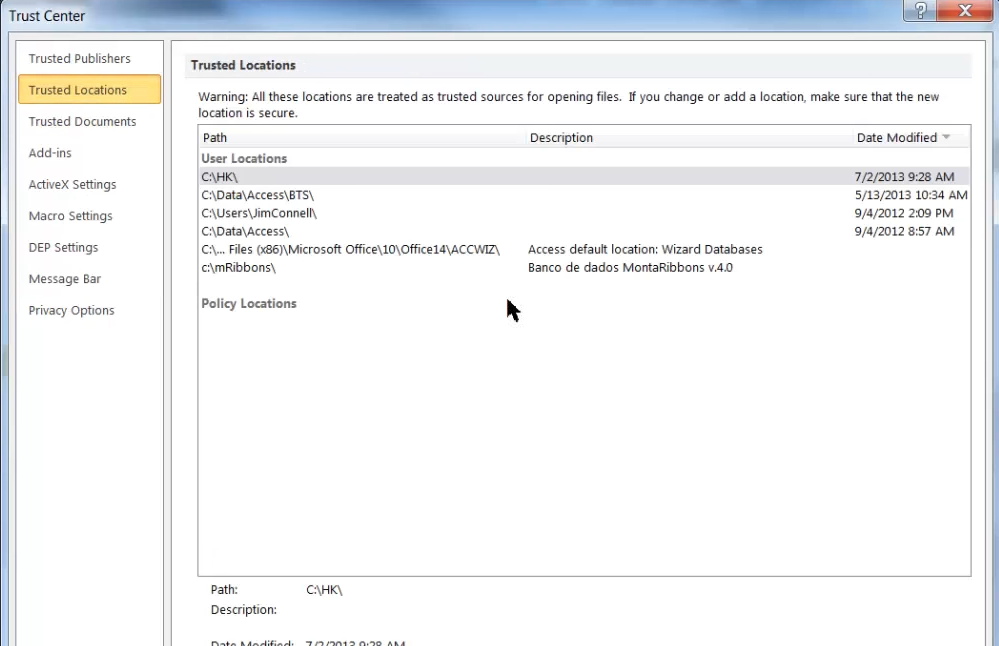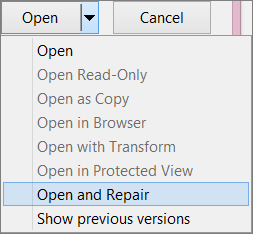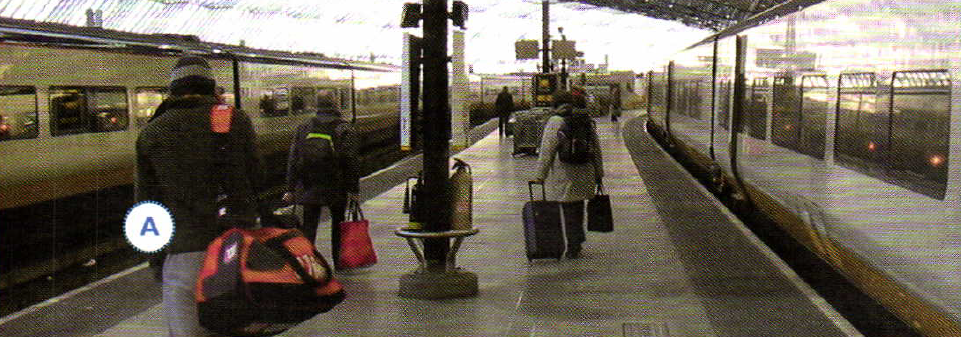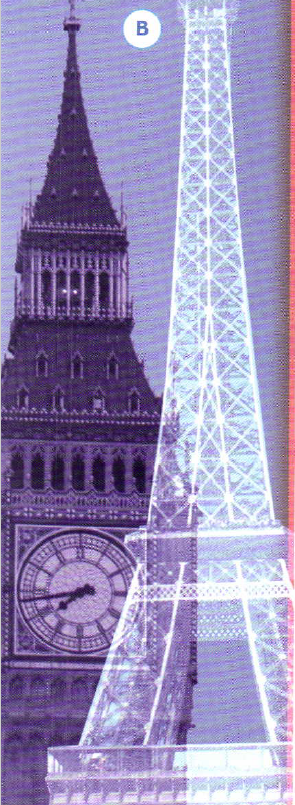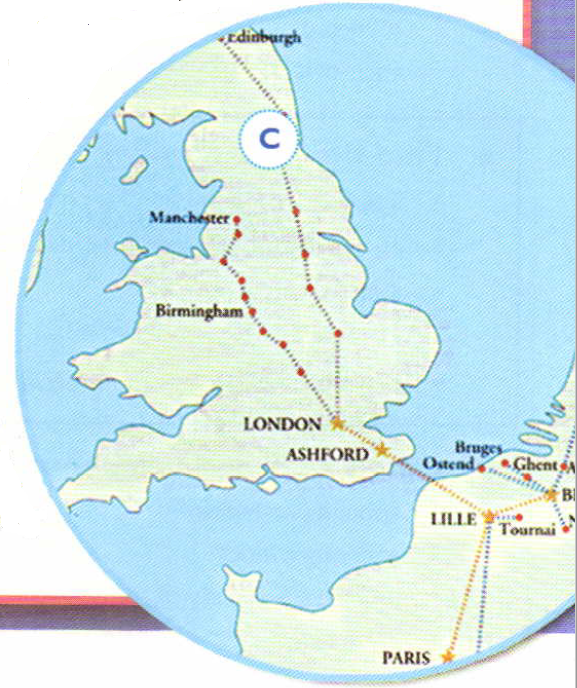Work experience: but not as you know it
Hello, we’re The Writer, the world’s biggest language consultancy.
We’re looking for students, ideally second-year undergraduates, to come to our two-day Word Experience on Wednesday 12th and Thursday 13th April.
If you like what you read, be sure to send us your application by Friday 24th March. (You’ll see how to get in touch a bit further down.)
What’s ‘Word Experience’?
We get a lot of requests from people wanting to come on work experience. But we’ve always felt work experience was pretty unsatisfactory all round: we can’t help many people in a year; you inevitably end up doing quite a bit of boring stuff; and, if we’re honest, it’s a lot of work to do well. (And who wants to do it badly?)
So we cooked up Word Experience: we gather about 20 people together for two days of creativity, workshops and fun stuff. Along the way we’ll talk to you about how you can make a career out of writing for business, show you how our agency works, and some Writer folk will tell you their own stories of how they got into business writing. All to show you there’s a career for people who like words that isn’t publishing or journalism.
Then we usually pick two people from each year to come back and join us for a short paid internship. (And some of those have ended up working here.)
Keep reading if:
You already write for your course
Maybe you study English, journalism or creative writing. Or maybe you just write a lot of essays.
You write in your spare time too
You might write for your student paper, a blog, or fiction. It doesn’t matter as long as you write.
You’re a bit of a word geek
You have a tendency to get excited or properly riled up by all kinds of writing. From tube ads to tubes of toothpaste, Booker Prize winners to Charlie Brooker.
Yes that’s me. What do I need to do?
Send us 300 words telling us why we should pick you (and a way for us to get in touch with you) to [email protected]. Make sure ‘Word Experience’ and your name are in the subject line. And get it to us by Friday 24th March.
Here’s what previous Word Experiencers have said:
‘Word experience is, in a nutshell, the workshop we all should have done ages ago. Finally it feels like there’s a company out there who is trying to show you how to turn what you love, into what you do. Those two days in London opened my eyes to an industry I was surrounded by and yet unaware of, it gave me a whole new appreciation for marketing, for words and for the people who write them.’
‘Hands-on activities included the sorts of word games that seem like harmless entertainment while you do them, but come loaded with Karate Kid-style moments of realisation that detonate later on. The other day I was struggling over an email to a tutor, then something clicked and (wax on, wax off) I realised I could cut out half the words to make it cleaner and clearer.’
Hello, we’re The Writer (thewriter.com), the country’s biggest language consultancy.
We’re looking for second-year undergraduates to come to our two-day Word Experience on 11th and 12th April 2013.
We’ll show you how you can make a career out of writing for business. By giving you plenty of writing exercises, linguistic brainstorms and home-made pecha kuchas* to get your teeth into. We might even get you working with us on a live project.
(*Google has the answer.)
Keep reading if:
- You already write for your course
- Maybe you study English, journalism or creative writing. Or maybe you just write a lot of essays.
- You write in your spare time too
- You might write for your student paper, a blog, or fiction. It doesn’t matter as long as you write.
- You’re a bit of a word geek
- You have a tendency to get excited or properly riled up by all kinds of writing. From tube ads to tubes of toothpaste, Booker Prize winners to Charlie Brooker.
Yes that’s me. What do I need to do?
Send us 300 words telling us why we should pick you (and a way for us to get in touch with you) to pickme@thewriter.com. Make sure ‘Word Experience’ and your name are in your subject line. And get it to us by 28th February 2013.
by Matthew Adams
Matthew is a freelancer who has produced a variety of articles on various topics related to technology. His main focus is the Windows OS and all the things… read more
Updated on October 10, 2022
- The Word experienced an error trying to open the file error that arises for some users when they try to open Word documents.
- This troubleshooting guide includes some of the best fixes for this Word issue, so keep reading.
- To fix other software errors, check out our extensive and easy-to-follow Fix Hub.
- Don’t hesitate to explore our How-To section for more useful guides on a variety of topics.
Some Word users have encountered an error message that states, Word experienced an error trying to open the file.
This error arises for some users when they try to open MS Word document files.
As a consequence, documents don’t open when Word displays this error message:
There are a few confirmed fixes for this issue, and in this guide we will discuss them all.
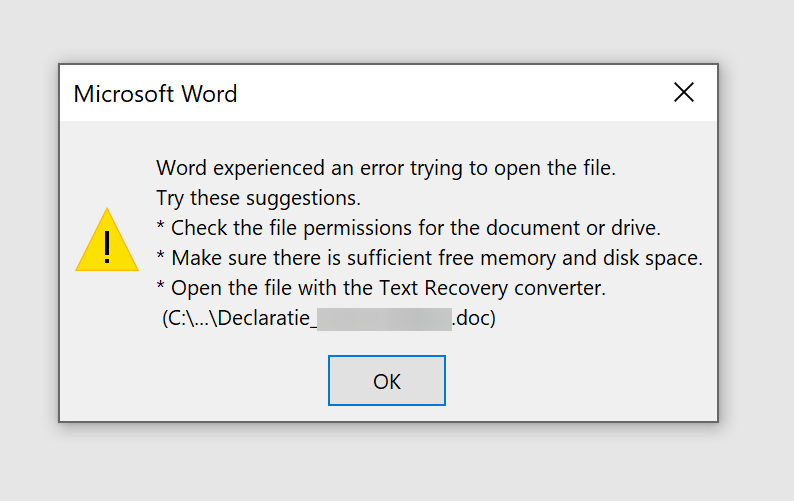
Why am I getting Word experienced an error trying to open the file message on Windows 11?
If you get this message, it’s possible that the file is in use by another application, and that’s what preventing you from opening it.
It’s also possible that the installation is damaged because Microsoft Office encountered an error during setup, and if that’s the case, you might have to reinstall it.
This isn’t the only issue that you can encounter and many have reported that Microsoft Word has stopped working, so you might have to check your installation.
How can I fix the Word experienced an error to open the file?
1. Use specialized repair software
This issue can occur if your Word file is corrupted, and if that’s the case, you might have to repair it with a specialized software such as Stellar Repair for Word.
Using this tool you can repair multiple documents simultaneously, and preview the recovered files before saving them. Regarding compatibility, the software works with all versions of Word.
As for the recovery process, there are three methods available, so you can easily recover any corrupted Word document.

Stellar Repair for Word
Try using this program to repair your files without modifying the original content.
2. Unblock your Word file
- Right-click the document file that the error arises in.
- Select Properties.
- Press the Unblock button on the General tab if you can see it.
- Click the OK button to close the window.
3. Disable Word’s Protected View options
- Click onWord’s File tab.
- Next, click Options on the left of the File tab.
- Select the Trust Center tab.
- Press the Trust Center Settings button.
- Click Protected View to open the options shown directly below.
- Deselect all three of the selected Enable Protected View checkboxes.
- Press the OK button to close the Trust Center window.
- Click OK to exit Word Options.
4. Add the files to a trusted folder location
- Open File Explorer with its Windows key + E hotkey.
- Move all the document files the Word experienced an error issue arises for, to an alternative folder.
- Open the Word application.
- Click the File tab and choose Options.
- Press the Trust Center Settings button on the Trust Center tab.
- Select the Trusted Locations tab shown directly below.
- Press the Add new location button.
- Click the Browse button.
- Select the folder that you moved the Word documents to.
- Click the OK option.
- Select the Subfolders of this location are also trusted checkbox.
- Finally, click OK on the Microsoft Office Trusted Location window.
- How to fix WINWORD.EXE application errors
- Can’t edit a Word doc? Here are 7 quick fix solutions
- FIX: Error opening file for writing in Windows 10
5. Repair the MS Word document
- Open MS Word.
- Click Open on Word’s File tab.
- Select the Browse option.
- Select the Word document the error arises for.
- Click the Open button’s small arrow to open the submenu in the shot directly below.
- Select the Open and Repair option.
For more details on how to repair MS Word documents, you can always check out this thorough guide.
6. Open the document with an alternative word processor
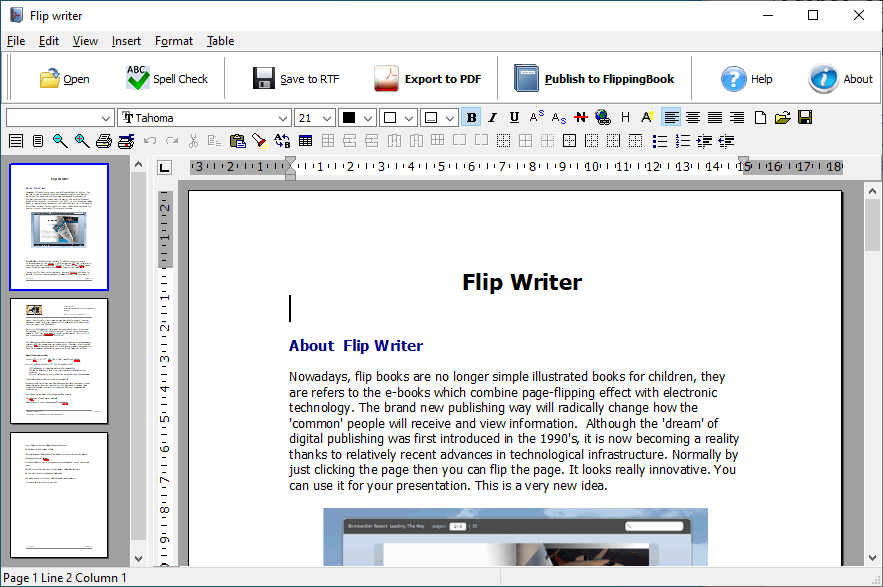
This resolution is more of a workaround than a fix. However, your MS Word document might open fine with other software that supports its file format.
Lots of word processors support MS Word file formats. So, try opening the file the issue arises with alternative software.
Then you can view and edit the document as required if it opens ok in alternative word processors.
The above resolutions will probably fix the Word experienced an error issue for most users, and if you are included in that group, feel free to share you experience with us.
You can do so by using the comment section below this guide.
Newsletter
Hello Peers, Today we are going to share all week assessment and quizzes answers of Writing and Editing Word Choice and Word Order course launched by Coursera for totally free of cost✅✅✅. This is a certification course for every interested students.
In case you didn’t find this course for free, then you can apply for financial ads to get this course for totally free.
Checkout this article for – “How to Apply for Financial Ads?”
Coursera, a India’s biggest learning platform which launched millions of free courses for students daily. These courses are from various recognized university, where industry experts and professors teaches in a very well manner and in a more understandable way.
Here, you will find Writing and Editing Word Choice and Word Order Exam Answers in Bold Color which are given below.
These answers are updated recently and are 100% correct✅ answers of all week, assessment and final exam answers of Writing and Editing Word Choice and Word Order from Coursera Free Certification Course.
Use “Ctrl+F” To Find Any Questions Answer. & For Mobile User, You Just Need To Click On Three dots In Your Browser & You Will Get A “Find” Option There. Use These Option to Get Any Random Questions Answer.
Apply Link – Writing and Editing Word Choice and Word Order
Week 1 Assessment : Weekly Review (Graded)
Question 1
In Seeing What Others Don’t, the psychologist Gary Klein offers an equation to think about how to improve performance. Identify it below.
1 point
- Improved Performance = Reducing Errors + Increasing Insights
- Improved Performance = MC^2
- Improved Performance = Talent x Effort
- Improved Performance = a^2 + b^2
2.
Question 2
What was the advice that the Dominican-American writer Julia Alvarez received from her grandmother about the power of writing?
1 point
- “El papel aguanta todo.”
- “El papel no aguanta nada.”
3.
Question 3
In the videos, we stressed that writing is about two things: mechanics and ________.
1 point
- sounding smart
- commas
- penmanship
- strategy
4.
Question 4
Both in the readings and in the classroom clips, an observation by Daniel Kahneman, who won the Nobel Prize in Economics, was used to capture the idea of “framing” and the importance of knowing the “words under the words.” Identify that observation below.
1 point
- “I believe he was a saint of some kind. When someone remarked in his hearing that he had lost an eye in the Civil War, he said, ‘I prefer to remember that I have kept one.’”
- “I never know how little I know about something until I try to write cogently about it.”
- “Don’t romanticize your ‘vocation.’ You can either write good sentences or you can’t. There is no ‘writer’s lifestyle.’ All that matters is what you leave on the page.”
- “People don’t choose between things, they choose between descriptions of things.”
5.
Question 5
The psychologist Anders Ericsson, who is often referred to as the “expert on experts,” has identified a method for achieving peak performance. He called it ________.
1 point
- Deliberate practice
- Temptation bundling
- The words under the words
- 6-60-6
6.
Question 6
Which of these is not an element of a “S.M.A.R.T.” goal?
1 point
- Specific
- Relevant
- Timely
- None of the above
7.
Question 7
The lesson we took from the book The End of Average by Todd Rose was to “Customize your __________.”
1 point
- car
- schedule
- education
- wardrobe
8.
Question 8
One of the videos stressed that “You can’t fix mistakes you don’t see.” The lesson was on the connection between
1 point
- S.M.A.R.T. Goals and Stretch Goals.
- Breadth and Depth.
- Drafting and Editing.
- Punctuation and Professionalism.
9.
Question 9
One of the videos included the following sentence from the short story “Birthmates” by the American writer Gish Jen: “Sometimes people get undivorced.” We said it was an example of _________.
1 point
- a nifty not
- a coordinating conjunction
- nuance
- headlining
10.
Question 10
In the “Punctuation and Professionalism” segment, we learned that sometimes skilled writers intentionally deviate from the convention against using comma splices. Three of the quotations below are examples of that. The other isn’t a comma splice at all. Identify the one that is not a comma splice at all.
1 point
- “She was fire, he was ice.”
- “It’s hard to fix mistakes you don’t see.”
- “Both stories are selective, neither is false.”
- “It was the best of times, it was the worst of times.”
Week- 2: Weekly Review (Graded)
Question 1
To start the week, we spent time reviewing the material from the previous week, sort of like how television shows recap old episodes to better prepare viewers for the new episode. We called this segment __________.
1 point
- Notes on Nuance
- Previously On
- Punctuation and Professionalism
- Takeaways
2.
Question 2
One of the psychologists who coined the term “impostor syndrome,” Pauline Rose Clance, has said that she regrets the “syndrome” part of that phrase. “If I could do it all over again,” she told an interviewer in 2015, “I would call it the impostor ______, because it’s not a syndrome or a complex or a mental illness. It’s something almost everyone [goes through at some point].”
1 point
- experience
- ailment
- illness
- disease
3.
Question 3
Fill in the blank from the book Champions: The Making of Olympic Swimmers by Dan Chambliss. He is describing the “mundanity of excellence.” “The champion athlete does not simply do more of the same drills and sets as other swimmers; he or she also does things _______. That’s what counts. Very small differences, consistently practiced, will produce results.”
1 point
- prettier
- faster
- better
- worse
4.
Question 4
The video that reviewed “mechanics and strategy” included an observation by the American writer Russel Baker about punctuation. “In writing, punctuation plays the role of ________. It helps readers hear you the way you want to be heard.”
1 point
- the words under the words
- body language
- the infinite power of grammar
- an interrupting element
5.
Question 5
The term for word order is ______.
1 point
- syntax
- timely
- diction
- relevant
6.
Question 6
Which of these correctly states what we called the “Animal Farm Principle”?
1 point
- “It was the best of times, it was the worst of times.”
- “Show up, show up, show up, and after awhile the muse shows up, too.”
- “All I know about grammar is its infinite power.”
- “All hours are equal, but some hours are more equal than others.”
7.
Question 7
According to Ulrich Boser, the author of Learn Better, rereading and highlighting are particularly effective forms of studying.
1 point
True
False
8.
Question 8
What do you call a clause that can stand alone as a complete sentence?
1 point
- A relative clause
- An independent clause
- A dependent clause
- A reserve clause
9.
Question 9
The readings mentioned an advertising slogan used by The Economist magazine. It was a good example of a clever use of syntax. What was it?
1 point
- “Nobody has a monopoly on effective language.”
- “Life, liberty, and the pursuit of happiness.”
- “Great minds like a think.”
- “The order in which our sentences unfold or hit the reader is entirely within our control. Even better, syntactical choices can help us increase the precision of our writing, bringing what we say into sharper focus, even if we don’t have a mental thesaurus.”
10.
Question 10
True or False: The following sentence conforms with standard conventions of punctuation.
“I would really like to attend the writing workshop, however, I cannot make it this Friday.”
1 point
- True
- False
Week- 3: Weekly Review (Graded)
1.
Question 1
One of the videos mentioned the book Art Thinking: How to Carve Out Creative Space in a World of Schedules, Budgets, and Bosses by Amy Whitaker, who teaches at NYU and holds an interesting combination of degrees: she has an MFA from University College London and an MBA from Yale. Whitaker recommends trying to protect a certain part of your weekly schedule to “indulge your curiosity” and focus on things you can “learn and do.” Whitaker has a name for this idea. She calls it _______.
1 point
- interleaving
- studio time
- a comma splice
- the infinite power of grammar
2.
Question 2
What is it called when writers intentionally add extra conjunctions to a phrase or sentence?
1 point
- Coordinating Conjunction
- Polysyndeton
- Alliteration
- Asyndeton
3.
Question 3
Which of these is not an example of the Rule of Three?
1 point
- “Give me liberty or give me death!”
- “life, liberty, and the pursuit of happiness”
- “liberty, equality, fraternity”
- None of the above
4.
Question 4
The readings this week mentioned that the linguist John DeFrancis described writing as _______.
1 point
- “the mundanity of excellence”
- “the power of the particular”
- “visible speech”
- “invisible speech”
5.
Question 5
“If information is studied so that it can be interpreted in relation to other things in [your] memory, learning is much more powerful.”
The observation above, from the psychologist Robert Bjork, describes a process called ________.
1 point
- interleaving
- polysyndeton
- adverbial conjunctions
- notes on nuance
6.
Question 6
In Women and Power, the British historian Mary Ann Beard uses the “to” move we learned in the Notes on Nuance segment to comment on the Me Too movement. She also combines it with alliteration.
“From the casting couch to the gropes behind the office photocopier, from New York to _______, the spirit of Me Too may ensure that women are no longer silent about this kind of abuse.”
1 point
- Dubai
- New Jersey
- Hong Kong
- Nairobi
7.
Question 7
True or False: An adverbial conjunction is the same thing as a conjunctive adverb.
1 point
- True
- False
8.
Question 8
True or False: An adverbial conjunction is the same thing as a coordinating conjunction.
1 point
- True
- False
9.
Question 9
True or False: The “to” move has to be used in a Rule of Three way.
1 point
- True
- False
10.
Question 10
The assigned reading this week — Chapter 3 of Good with Words — indicated that ________ are often spots where you will see a lot of Rule of Three.
1 point
- subtitles of books
- the copyright page of books
- the acknowledgement section of books
- the footnotes of books
Week- 4: Weekly Review (Graded)
1.
Question 1
Which of these is not one of the concepts we mentioned when discussing the work of the psychologist Robert Bjork, who runs the Learning and Forgetting Lab at UCLA?
1 point
- Spacing
- Desirable difficulty
- Interleaving
- T-Shaped
2.
Question 2
One of the videos mentions an article in the Chronicle of Higher Education about the habits of highly productive writers. Which of the statements below did the video say was in that article?
1 point
- “[Highly productive writers] leave off at a point where it will be easy to start again.”
- “[Highly productive writers] don’t let themselves off the hook.”
- “[Highly productive writers] work on more than one thing at once.”
- All of the above
3.
Question 3
What term did the materials employ to suggest that good writers evoke more than just the sense of sight?
1 point
- Strive for Five
- The Rule of Three
- The Words Under the Words
- None of the above
4.
Question 4
One of the videos included an excerpt from The First Five Pages by the American literary agent and writer Noah Lukeman. “Minor distinctions can make a ______ difference. Specificity is what distinguishes poor from good from brilliant writing. As a writer, you must train your mind to be, above all, exacting.” Fill in the missing word.
1 point
- major
- insignificant
- slight
- None of the above
5.
Question 5
The readings included a helpful statement about the effort that can be necessary to write in an authentic way: “sometimes sincerity takes a few ______.”
Fill in the missing word.
1 point
- personalized defaults
- desirable difficulties
- drafts
- comma splices
6.
Question 6
The American poet Ruth Stone has said that “I decided very early on not to write like other people.” Which concept does Stone’s commitment resemble?
1 point
- Punctuation and Professionalism
- Sentences that nobody else could write
- Interleaving
- The Rule of Three
7.
Question 7
True or False: An adverbial conjunction is the same thing as a conjunctive adverb.
1 point
- True
- False
8.
Question 8
Which of these is not an example of chiasmus?
1 point
- “Ideals without technique are a mess. But technique without ideals is a menace.”
- —Karl Llewellyn, “On What’s Wrong with So-Called Legal Education?”(1935)
- “I believe that the extraordinary should certainly be pursued. But extraordinary claims require extraordinary evidence.”
- —Carl Sagan, “Night Walkers and Mystery Mongers: Sense and Nonsense at the Edge of Science” (1986)
- “The school was my home, and my home was the school.”
- —Malala Yousafzai and Christina Lamb, I am Malala: The Girl Who Stood Up for Education and Was Shot by the Taliban (2013)
- “For the strength of the pack is the wolf, and the strength of the wolf is the pack.”
- —Rudyard Kipling, The Jungle Book (1894)
9.
Question 9
True or False: The word “however” is a coordinating conjunction.
1 point
- True
- False
10.
Question 10
The video on cover letters and other application materials suggested a particular framework for thinking about the different elements of a cover letter and other application materials. What was it?
1 point
- F-A-N-B-O-Y-S
- S-H-A-P-E
- Keep/Cut
- E-D-I-T
Conclusion
Hopefully, this article will be useful for you to find all the Week and Final Quiz Assessment Answers of Writing and Editing Word Choice and Word Order Answer of Coursera and grab some premium knowledge with less effort. If this article really helped you in any way then make sure to share it with your friends on social media and let them also know about this amazing training. You can also check out our other course Answers. So, be with us guys we will share a lot more free courses and their exam/quiz solutions also and follow our Techno-RJ Blog for more updates.
На этой странице находятся все задания с полными, готовыми решениями из учебника Starlight 10, Unit 1.1.
Ex. 1. Describe picture A: where it was taken; time of year; how people feel.
Упр.1. Описать фотографию: когда она сделана, какое время года, как чувствуют себя люди.
ЗаданиеОтвет
Picture A was taken on a platform of a train station. Obviously, it is late autumn or winter because the people on the platform are wearing warm caps, jackets, and coats. It is not clear whether they are going to get on a train or they have just got off it, but I think they look tired. As a rule, long trips exhaust very much.
Фотография A была сделана на платформе какой-то железнодорожной станции. Очевидно, перед нами поздняя осень или зима, потому что люди носят теплые шапки, куртки и пальто. Неясно, собираются ли они сесть на поезд или они только что сошли с него, но я думаю, что они выглядят уставшими. Как правило, длинные поездки сильно изнуряют.
Ex. 2. Look at the map. Which countries can you see? How are the landmarks in picture В related to the map?
Упр.2. Посмотрите на карту. Какие страны вы видите? Как достопримечательности с фото B связаны с данной картой?
ЗаданиеОтвет
Фото B
Фото С
We can see two countries on the map, they are the UK and France. In picture B, we can see two landmarks, Big Ben and The Eiffel Tower. Both landmarks are closely related to the map. Big Ben is a place of interest in the UK, while the Eiffel Tower is a place of interest in France.
Мы можем видеть две страны на карте – Соединенное Королевство и Францию. На фото В м можем видеть две достопримечательности – Биг Бен и Эйфелеву Башню. Обе достопримечательности тесно связаны с картой. Биг Бен – это достопримечательности в Соединенном Королевстве, в то время как Эйфелева Башня – это достопримечательность во Франции.
Ex. 3. Read the last sentence in each paragraph. What is the article about? Listen, read and check.
Прочтите последние предложения в каждом абзаце. О чем эта статья? Прослушайте, почитайте и проверьте.
Play текст
ТекстПеревод
A Journey Under the Sea
Several years ago, my wife and I came upon an advertisement in a travel magazine for an international exchange programme promising “the chance of a lifetime”. Not one to let such an intriguing opportunity pass me by, but a bit hesitant about taking such a leap into the unknown, I did some research and discovered that the programme involved something called house-swapping.
After much discussion, my family and I decided to, as they say, go for it. Consequently, we were soon setting off for a holiday in the Peak District of England while our exchange partners were settling down for their vacation in our flat back home in Mt Vernon, Washington. The exchange was for a month and the time passed quickly. To end our time away on a high note, we decided to travel to Paris via the engineering marvel known as the Channel Tunnel.
Being on a fairly tight budget, we opted for a package deal which included round-trip tickets on the Eurostar passenger train, five nights in a three-star hotel in Paris, Metro passes and unlimited use of the Paris bus system. When the package still hadn’t arrived after a week, I began to think that perhaps our trip hadn’t been such a good idea after all. Maybe it was a sign that we shouldn’t go.
The tickets and vouchers eventually arrived and I scolded myself for having had such silly thoughts. On the day of departure, with plenty of time to spare, my two teenage children, my wife and I stood waiting eagerly on the platform at Waterloo Station. At exactly 7.57 am, we boarded our train and began our journey through the picturesque county of Kent. About an hour into our journey, an announcement, in both English and French, informed us that we were about to enter the Channel Tunnel.
The Eurostar adverts had boasted proudly about the engineering feat that was the ‘Chunnel’, and the convenience it offered to those travelling between England and the Continent. They had spoken highly of the “lack of rough seas” and to me, a person who gets seasick very easily, this was a major selling point. When all is said and done, however, I must admit that there were moments when I felt quite nervous about travelling 50 metres below the bottom of the English Channel.
Inside the tunnel itself, there really wasn’t much to grab my attention – no posters or other artwork – so I busied myself studying the occupants of our carriage. Some calmly read novels or newspapers; others quietly looked through business reports and notes. I quickly realised, however, that most of my fellow passengers were like my family in that they looked excited and very happy to be enjoying such a novel travel experience.
Our underwater journey ended as quickly as it had begun. All of a sudden, we left the darkness of the tunnel behind and nosed out into the light of the pleasant French morning. The tracks being well-built, we quickly accelerated to 300 kph, the speed of a Boeing 747 at takeoff. We arrived in Paris’ busy city centre a mere 180 minutes after leaving London. That journey, and indeed the whole time that we spent on the exchange programme, have given us all a yearning for new experiences, and many wonderful memories that we will cherish forever.
A Journey Under the Sea
Поездка под водой.
| Several years ago, my wife and I came upon an advertisement in a travel magazine for an international exchange programme promising “the chance of a lifetime”. Not one to let such an intriguing opportunity pass me by, but a bit hesitant about taking such a leap into the unknown, I did some research and discovered that the programme involved something called house-swapping. | Несколько лет назад мы с женой наткнулись в журнале для путешественников на объявление о программе международного обмена, обещающей “шанс всей вашей жизни”. Не будучи тем, кто упустит такую интригующую возможность, но и не торопясь прыгнуть в неизвестное, я провел небольшое изучение вопроса и обнаружил, что эта программа включала в себя нечто под названием хаус-свопинг (дословно: обмен домами). | |
| After much discussion, my family and I decided to, as they say, go for it. Consequently, we were soon setting off for a holiday in the Peak District of England while our exchange partners were settling down for their vacation in our flat back home in Mt Vernon, Washington. The exchange was for a month and the time passed quickly. To end our time away on a high note, we decided to travel to Paris via the engineering marvel known as the Channel Tunnel. | Хорошо обсудив, мы с семьей решили, как говорится, попробовать. В результате вскоре мы уже отправлялись на отдых в парк Пик Дистрикт в Англии, в то время как наши партнеры по обмену устраивались на отдых в нашей квартире в Маунт-Вернон в Вашингтоне. Обмен был на месяц, и время прошло быстро. Чтобы на высокой ноте завершить наш отдых, мы решили съездить в Париж посредством инженерного чуда известного как тоннель под Ла-Маншем. | |
| Being on a fairly tight budget, we opted for a package deal which included round-trip tickets on the Eurostar passenger train, five nights in a three-star hotel in Paris, Metro passes and unlimited use of the Paris bus system. When the package still hadn’t arrived after a week, I began to think that perhaps our trip hadn’t been such a good idea after all. Maybe it was a sign that we shouldn’t go. | Будучи стесненными в средствах, мы выбрали комплексный вариант, который включал билеты туда и обратно на пассажирском поезде компании Евростар, пять ночей в трехзвездочном отеле в Париже, проездные в метро и безлимитное использование автобусов в Париже. Когда наши путевки еще не подоспели спустя неделю, я начал думать, что, может быть, в конце концов наша поездка не была уж такой хорошей идеей. Может быть, это был знак к тому, что нам не надо ехать. | |
| The tickets and vouchers eventually arrived and I scolded myself for having had such silly thoughts. On the day of departure, with plenty of time to spare, my two teenage children, my wife and I stood waiting eagerly on the platform at Waterloo Station. At exactly 7.57 am, we boarded our train and began our journey through the picturesque county of Kent. About an hour into our journey, an announcement, in both English and French, informed us that we were about to enter the Channel Tunnel. | Наконец-то, билеты поступили, и я ругал себя за такие глупые мысли. В день отправления с большим запасом времени мы с женой и двумя детьми подросткового возраста стояли и с нетерпением ждали на платформе на станции Ватерлоо. Ровно в 7:57 утра мы сели на наш поезд и начала наше путешествие по живописному графству Кент. Примерно через час нашей поездки объявление на английском и французском языках проинформировало нас о том, что мы въезжаем в тоннель под Ла-Маншем. | |
| The Eurostar adverts had boasted proudly about the engineering feat that was the ‘Chunnel’, and the convenience it offered to those travelling between England and the Continent. They had spoken highly of the “lack of rough seas” and to me, a person who gets seasick very easily, this was a major selling point. When all is said and done, however, I must admit that there were moments when I felt quite nervous about travelling 50 metres below the bottom of the English Channel. | Рекламные объявления от компании Евростар с гордостью описали инженерный подвиг, которым являлся “Чаннел”, и удобство, которое он предоставлял тем, кто передвигается между Англией и Континентом. Они высоко оценили “отсутствие неспокойного моря”, и для меня, который быстро подхватывает морскую болезнь, это стало главной “фишкой”. Однако, я должен признаться, что когда все было сказано и сделано, были моменты, когда я весьма понервничал из-за поездки на уровне 50 метров под дном Ла-Манша. | |
| Inside the tunnel itself, there really wasn’t much to grab my attention – no posters or other artwork – so I busied myself studying the occupants of our carriage. Some calmly read novels or newspapers; others quietly looked through business reports and notes. I quickly realised, however, that most of my fellow passengers were like my family in that they looked excited and very happy to be enjoying such a novel travel experience. | Внутри самого канала на самом деле мало что привлекло мое внимание – не было никаких плакатов или иных изделий искусства – поэтому я занял себя изучением пассажиров нашего поезда. Кто-то спокойно читал романы или газеты, другие молча просматривали деловые отчеты и заметки. Однако, я быстро понял, что большинство моих спутников были похожи на мою семью в том плане, что они выглядели приятно взволнованными и очень счастливыми от того, что наслаждаются новыми ощущениями от путешествия. | |
| Our underwater journey ended as quickly as it had begun. All of a sudden, we left the darkness of the tunnel behind and nosed out into the light of the pleasant French morning. The tracks being well-built, we quickly accelerated to 300 kph, the speed of a Boeing 747 at takeoff. We arrived in Paris’ busy city centre a mere 180 minutes after leaving London. That journey, and indeed the whole time that we spent on the exchange programme, have given us all a yearning for new experiences, and many wonderful memories that we will cherish forever. | Наша подводная поездка завершилась так же быстро, как и началась. внезапно мы покинули темноту туннеля и вынырнули в свет приятного французского утра. Рельсы были так хорошо построены, что мы быстро разогнались до 300 км. в час – скорость влетающего самолета Боинг 747. Мы прибыли в деловой парижский центр города через каких-то 180 минут, после того как покинули Лондон. Эта поездка, а на самом деле все время, которое мы потратили на программу обмена, дало нам сильное желание новых впечатлений и большое количества воспоминаний, которые мы будем лелеять вечно. |
Ex. 4. Read the article again. For statements I -7, choose А, В, С or D to complete each statement correctly. Then translate lines 27-45 from the text into Russian.
Выбрать правильный ответ.
ЗаданиеОтвет
1) The writer first learned about the house-swapping scheme
A. from his wife.
В. purely by chance.
С. through a travel agent.
D. by doing research.
2) The writer uses the phrase ‘go for it’ (paragraph 2) to express the idea of
A. taking a risk.
В. going abroad.
С. flying on a jet.
D. having a choice.
3) The writer chose the package deal because
A. they wanted to travel via the Channel Tunnel.
В. it included a stay in a top-class hotel.
С. it was cheap for what it offered.
D. it allowed them to use the Metro and bus system.
4) The writer was most attracted by the fact that the Eurostar train
A. travelled so far below sea level.
В. was unaffected by sea conditions.
С. offered a convenient way to travel.
D. used such a well-designed tunnel.
5) During his journey through the tunnel, the writer
A. studied a business report.
В. looked at the other passengers.
С. read a novel about travelling.
D. wished the journey would end quickly.
6) We learn from the writer that
A. the trip from London to Paris took 3 hours.
В. the train accelerates faster than a Boeing 747.
С. the train’s top speed is 300 kph.
D. Paris’ city centre is busier than London’s.
7) As a result of his experiences, the writer
A. began to think more about the past.
В. saw the value of doing new things.
С. realised his journey was special.
D. saw that he needn’t have worried so much.
1) The writer first learned about the house-swapping scheme – автор впервые узнал о схеме обмена домами
A. from his wife. – от своей жены
В. purely by chance. – чисто случайно (правильный ответ)
С. through a travel agent. – от турагента
D. by doing research. – исследуя вопрос.
2) The writer uses the phrase ‘go for it’ (paragraph 2) to express the idea of – автор использует фразу ‘go for it’ (абзац 2), чтобы сказать о
A. taking a risk. – рискованности (правильный ответ)
В. going abroad. – поезде за границу
С. flying on a jet. – полете на реактивной самолете
D. having a choice. – выборе
3) The writer chose the package deal because – автор выбрал комплексный вариант, потому что
A. they wanted to travel via the Channel Tunnel. – они хотели путешествовать через туннель под Ла-Маншем.
В. it included a stay in a top-class hotel. – он включал в себя пребывание в высококлассном отеле.
С. it was cheap for what it offered. – это было дешево за то, что предлагалось. (правильный ответ)
D. it allowed them to use the Metro and bus system. – это позволяло им пользоваться метро и автобусами.
4) The writer was most attracted by the fact that the Eurostar train – Автора больше всего привлекло то, что поезд компании Евростар
A. travelled so far below sea level. – ехал так низко под уровнем моря
В. was unaffected by sea conditions. – на подвергался влиянию морских условий (правильный ответ)
С. offered a convenient way to travel. – представлял собой удобный способ поездки
D. used such a well-designed tunnel. – пользовался таким хорошо спроектированным туннелем.
5) During his journey through the tunnel, the writer – Во время поездки по туннелю автор
A. studied a business report. – изучал деловой отчет.
В. looked at the other passengers. – смотрел на других пассажиров. (правильный ответ)
С. read a novel about travelling. – читал роман о путешествии.
D. wished the journey would end quickly. – хотел бы, чтобы поездка быстрей окончилась.
6) We learn from the writer that – от автора мы узнаем, что
A. the trip from London to Paris took 3 hours. – поездка из Лондона в Париж заняла всего 3 часа. (правильный ответ)
В. the train accelerates faster than a Boeing 747. – поезд набирает скорость больше, ем Боинг 747.
С. the train’s top speed is 300 kph. – предельная скорость поезда составляет 300 км. в час.
D. Paris’ city centre is busier than London’s. – центр Парижа более деловой, чем Лондона.
7) As a result of his experiences, the writer – в результате своего опыта автор
A. began to think more about the past. – начал думать больше о прошлом.
В. saw the value of doing new things. – понял ценность новых вещей. (правильный ответ)
С. realised his journey was special. – понял, что его поездка была особенной.
D. saw that he needn’t have worried so much. – понял, что ему не надо было так сильно волноваться.
Ex. 5. Match the words/phrases in bold to their definitions.
Соотнести выделенные жирным шрифтом слова (в тексте) с данными ниже определениями.
ЗаданиеОтвет
• passengers in • chance • reprimanded • sped up
• longing for • achievement • decided on
• eased forward • different • usefulness • attractive
• doing something without having previous experience of it
• endless
occupants of: passengers in (пассажиры)
opportunity: chance (возможность, шанс)
scolded: reprimanded (ругал, укорял)
accelerated: sped up (ускорился)
yearning for: longing for (сильное желание)
feat: achievement (подвиг, достижение)
opted for: decided on (выбрал, решился на)
nosed out: eased forward (выехал)
novel: different (новый, другой)
convenience: usefulness (польза)
picturesque: attractive (зрелищный, привлекательный)
taking such a leap into the unknown: doing something without having previous experience of it (сделать шаг в неизведанное, сделать то, чего раньше не делал)
unlimited: endless (бесконечный)
Ex. 6. Fill in: high, cherish, rough, travel, tight, grab, package, exchange, business, intriguing. Make sentences based on the text, using the phrases.
Вставить: high, cherish, rough, travel, tight, grab, package, exchange, business, intriguing. Составить предложения.
ЗаданиеОтвет
1) ……..programme
2) on a(n)……..note
3) …….. budget
4) ……..deal
5) ……..reports
6) ……..seas
7) ……..experience

9) to…….memories
10) ……..opportunity
1) exchange programme – программа обмена
The international exchange programme promised “the chance of a lifetime”. – Программа международного обмена обещала “шанс всей вашей жизни”.
2) on a high note – на высокой ноте
The writer and his family wanted to end their time away on a high note. – Автор со своей семьей хотели завершить свой отдых на высокой ноте.
3) tight budget – мало денег, ограниченный бюджет
The writer and his family had to opt for a package deal because they were on a fairly tight budget. – Автору с семьей пришлось выбрать комплексный вариант, потому что они были ограничены в средствах.
4) package deal – комплексный вариант, комплексная путевка
The package deal included round-trip tickets on the Eurostar passenger train, five nights in a three-star hotel in Paris, Metro passes and unlimited use of the Paris bus system. – Комплексаня путевка включала в себя: билеты в оба конца на поезде компании Евростар, пять ночей в трехзвездочном отеле в Париже, проездные билеты в место и безлимитное пользование парижскими автобусами.
5) business reports – деловые отчеты
Some people on the train were reading business reports. – Некоторые люди в поезде читали деловые отчеты.
6) rough seas – неспокойное море, качка на море
The writer cannot endure rough seas. – Автор не может выносить неспокойное море (морскую качку).
7) travel experience – опыт путешествий
As a result of his travel experience, the writer felt a yearning for new things. – В результате своего опыта путешествия автор почувствовал тягу к новым вещам.

Inside the tunnel itself, there wasn’t anything to grab my attention. – В самом туннеле не было чего-то, что захватило бы мое внимание.
9) to cherish memories – лелеять воспоминания
They will cherish their memories forever. – Они всегда будут лелеять их воспоминания.
10) intriguing opportunity – интригующая возможность
That was an intriguing opportunity to experience new things. – Это была интригующая возможность испытать то-то новое.
Ex. 7. Work in pairs. Imagine you have been on an interesting journey. Tell your partner about your journey.
Представьте, что вы побывали в интересном путешествии. Расскажите об этом своему партнеру.
ЗаданиеОтвет
Say:
• where you went and which means of transport you used
• how long you went for and the reason for your journey
• what you did during your stay there
Скажите:
• куда вы ездили и каким видом транспорта вы пользовались
• как долго вы ехал и какова была причина вашего путешествия
• что вы делали в течение вашего пребывания там
As for our family, we are on a fairly tight budget that’s why we prefer travellig through this country than going abroad. Last summer we went to the Altai Mountains, which are in Siberia. At first we wanted to go by plane or by train, but in the end we decided to go there by our car.
We needed two days for the journey, staying over at a small motel on the way. The reason for our journey was that we had heard much about the Altai Mountains, and we just wanted to see their beauty with our own eyes.
We put up a tent and lived there for five days. That was the time of our lives! We enjoyed the wonderful nature, gathered mushrooms and berries, and swam in the local lake. The whole time that we spent there gave us all a yearning for new experiences and many wonderful memories that we will cherish forever.
ПЕРЕВОД:
Что касается нашей семьи, то мы весьма стеснены в средствах, поэтому мы предпочитаем путешествовать по собственной стране, а не ездить за границу. Пошлым летом мы ездили на Алтайские горы, которые находятся в Сибири. Сначала мы хотели отправиться на самолете или на поезде, но в конце концов, мы решили поехать туда на нашей машине.
Нам понадобилось два дня с ночевкой в небольшом мотеле. Причиной путешествия стало то, что мы много слышали об Алтайских горах, и мы просто захотели увидеть их красоту собственными глазами.
Мы разбили палатку и жили с ней пять дней. Это было потрясающее время! Мы наслаждались природой, собирали грибы и ягоды, плавали в местном озере. Все время, которое мы провели там, дало нам тягу к новым впечатлениям и удивительные воспоминания, которые мы будем лелеять всю свою жизнь.
Ex. 8. Portfolio: Use your answers from Ex. 7 to write an email to a friend of yours about your travel experience (80-120 words).
На основе предыдущего упражнения напишите электронное письмо другу.
To: Alex_910@gmail.com
From: SahaPit23@gmail.com
Subject: My journey to the Altai Mountains
Dear Alex,
Thanks for your recent letter. I’m happy to get to know that you are OK.
Last summer we went to the Altai Mountains, which are in Siberia. We had heard much about the Altai Mountains, and we wanted to see their beauty with our own eyes. We went there by our car. We needed two days for the journey. We put up a tent and lived there for five days enjoying the wonderful nature, gathering mushrooms and berries, and swimming in the local lake. That was the time of our lives!
Sorry, I have to finish my letter because I my mother wants me to help her about the house. Keep in touch.
Best wishes,
Sasha
ПЕРЕВОД:
Кому: Alex_910@gmail.com
От: SahaPit23@gmail.com
Тема: Мое путешествие на Алтайские горы
Dear Alex,
Дорогой Алекс!
Спасибо за твое прошлое письмо. Я счастлив знать, что у тебя все в порядке.
Пошлым летом мы ездили на Алтайские горы, которые находятся в Сибири. Мы много слышали об Алтайских горах, и мы захотели увидеть их красоту собственными глазами. Мы поехали туда на собственной машине. На поездку ушло два дня. Мы разбили палатку и жили там пять дней, наслаждаясь удивительной природой, собирая грибы и ягоды и плавая в местном озере. Это было потрясающее время!
Прости, но я должен заканчивать письмо, потому что мама хочет, чтобы я помог ей по дому. Оставайся на связи!
С наилучшими пожеланиями,
Саша

